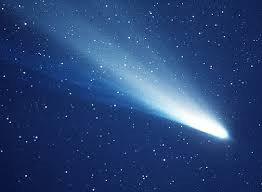 By providing programs for learners of all ages, we at Crossroads hope to prevent people from being fools…..even on April Fools Day. The origin of this strange celebration is obscure, but many scholars believe it dates back to 1582.
By providing programs for learners of all ages, we at Crossroads hope to prevent people from being fools…..even on April Fools Day. The origin of this strange celebration is obscure, but many scholars believe it dates back to 1582.
Until that year, April 1st was considered the beginning of the year, which made sense because in most years, this is the beginning of the growing season….a time of beginnings.
Back in the Middle Ages, Europeans used the Julian calendar which lacked a leap year. Through the centuries, the date of Easter tended to drift so to solve the problem, Pope Gregory XIII introduced the Gregorian calendar. That stopped the issue of drifting seasons for Roman Catholics (though not for those of the Protestant, Eastern Orthodox and Jewish faiths.) The Pope also decreed the New Years Day was January 1st…a significant change. But in those days, the information highway was cobblestone. Apparently, for several years, French peasants failed to get the message. People who continued to celebrate New Years on April first were ridiculed as April Fools.
There have been fools throughout history. In the video program “On Being Rarefied” (from the My Favorite Universe Series) which will be shown on April Fools Day at the General Meeting of the Door Peninsula Astronomical Society, Neil De Graase Tyson tells a story about Haley’s Comet. Understand that though comet tails are visible, they anything but dense. They are are made up of very few gas particles. Very, very few.
Neil DeGrasse Tyson (the host of the COSMOS television series) explains, ” When people first invented tools of spectroscopy, studying the light from object and looked at what material was in them—they found that comet tails had cyanogens (CN), a deadly poison. It would kill you, posthaste.
“When comet Halley came around in 1910, the public didn’t know about how low the density of the comet tail was and how it was barely anything. No matter what you found, it was not enough to do anything to anybody. What scared people was that we knew that Earth was passing through the tail of Halley’s Comet. It passed through the tail–it actually did–intersecting some of that gas. People got all worried. Charlatans were selling anti-comet pills, making a lot of money on people’s fears. If you knew a little bit about how thin it was, you would have saved your money. So knowing about rarefied phenomenon in the cosmos can be good for your pocketbook, on occasion.”
If you want to be less than a fool about astronomy, you will have two occasions to learn about the cosmos at Crossroads.. On Saturday, March 29, at 8:00, the Door Peninsula Astronomical Society will host a Viewing Night at the Astronomy Campus of Crossroads. Members of the Door Peninsula Astronomical Society will be on hand to help visitors explore Door County’s beautiful night sky, provided the beautiful night sky is clear.
The General meeting of the DPAS is open to the public, in addition to the “On Being Rarified” lecture, Dave Udell will present “This Month in Astronomy ” and refreshments will be served.
If you are planning to grow vegetables this year, you don’t want to be a fool about that either. Crossroads, in collaboration with UW Extension, The Community’s Garden, and Door County Master Gardeners will offer a four session Garden Workshop for Families on Wednesday evenings, 6:00-7:30 on April 16 and 30 and May 14 and 28. There is a fee of $15 per family to cover the cost of plants and planting supplies. However, each family takes home well over $50 worth of plants at the end of the class. For more information, contact the UW-Extension 421 Nebraska Street in Sturgeon Bay, or visit www.crossroadsatbigcreek.org and go to Learning Opportunities. Information and a sign-up form are under Environment.

